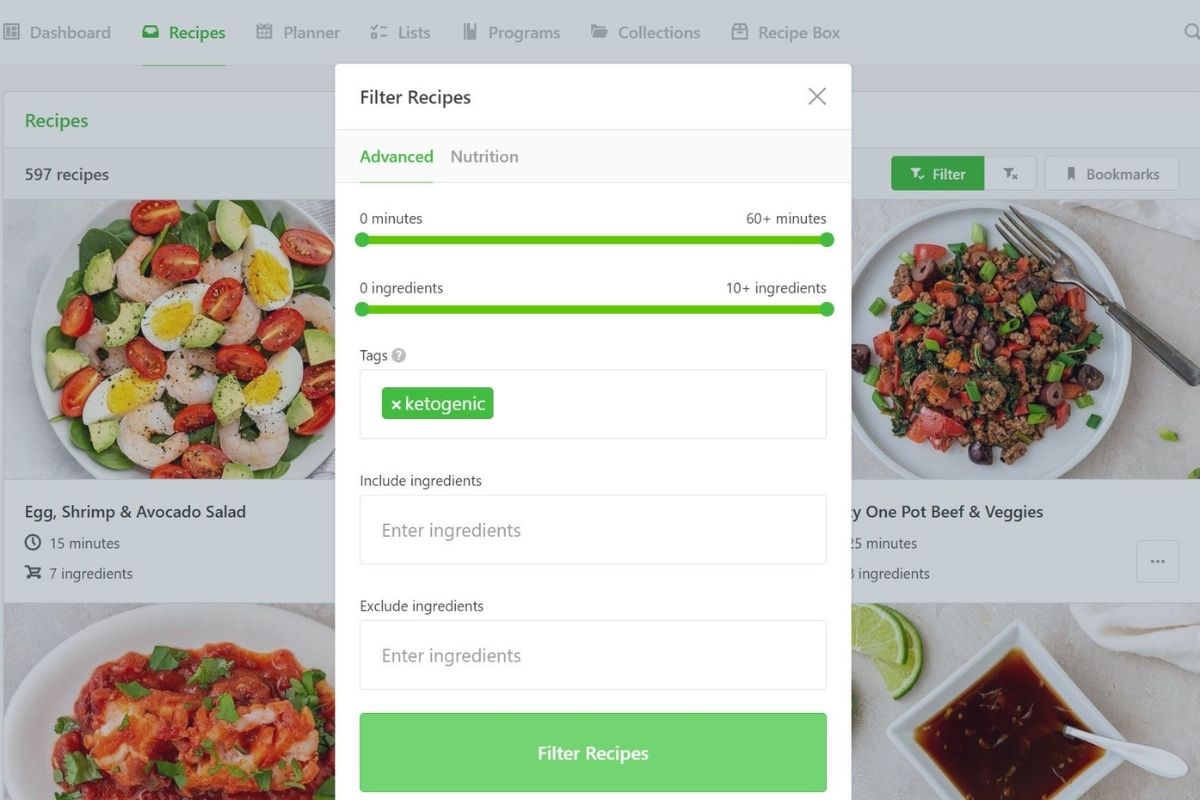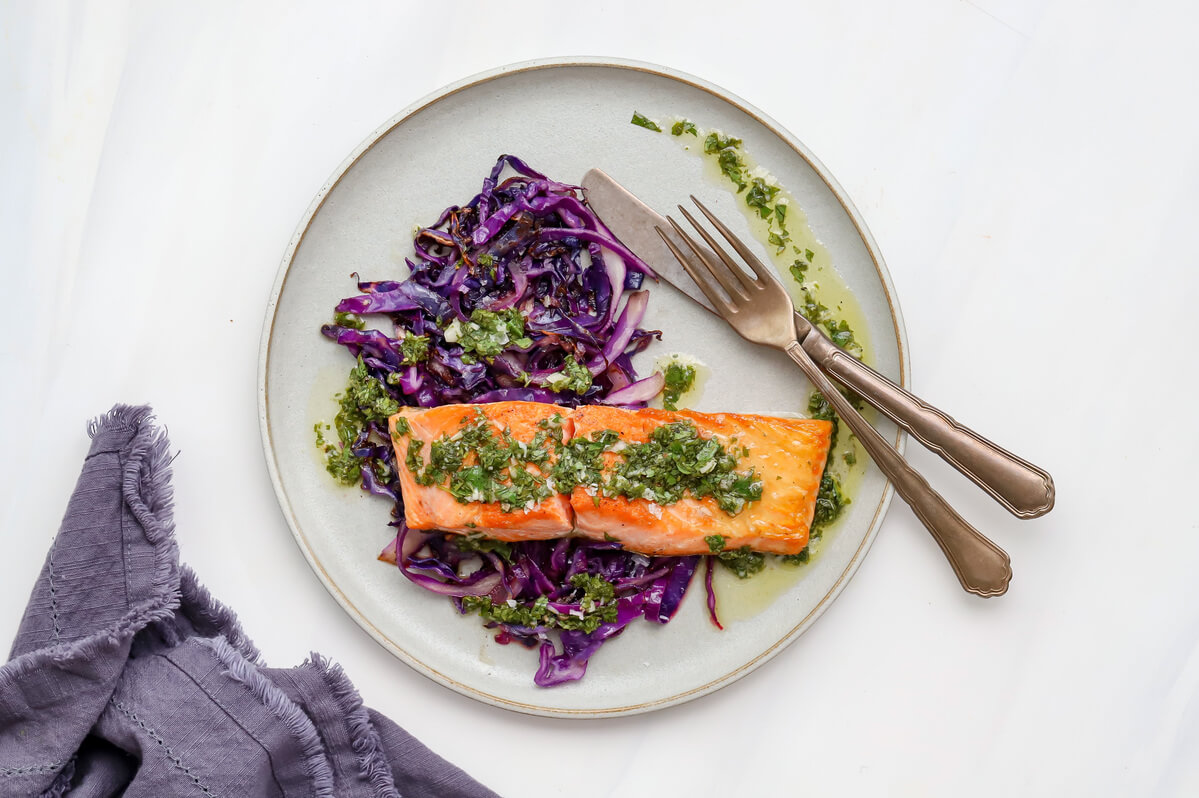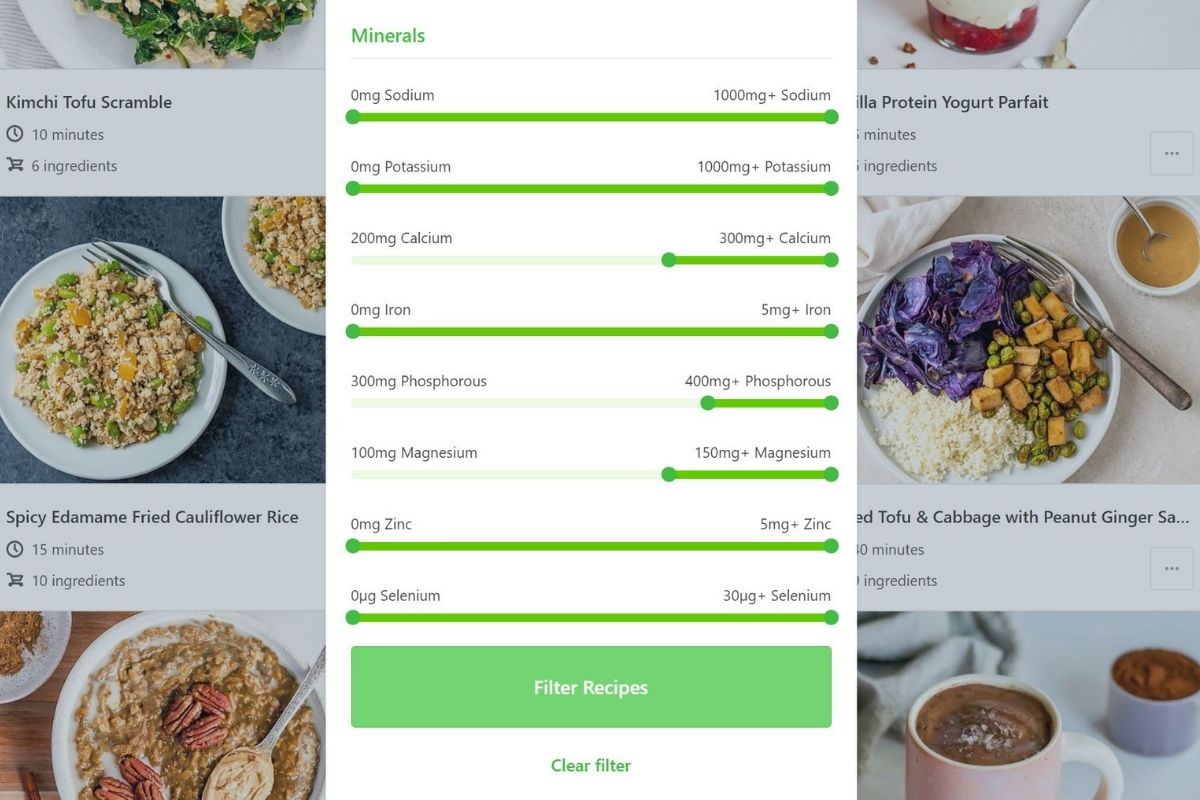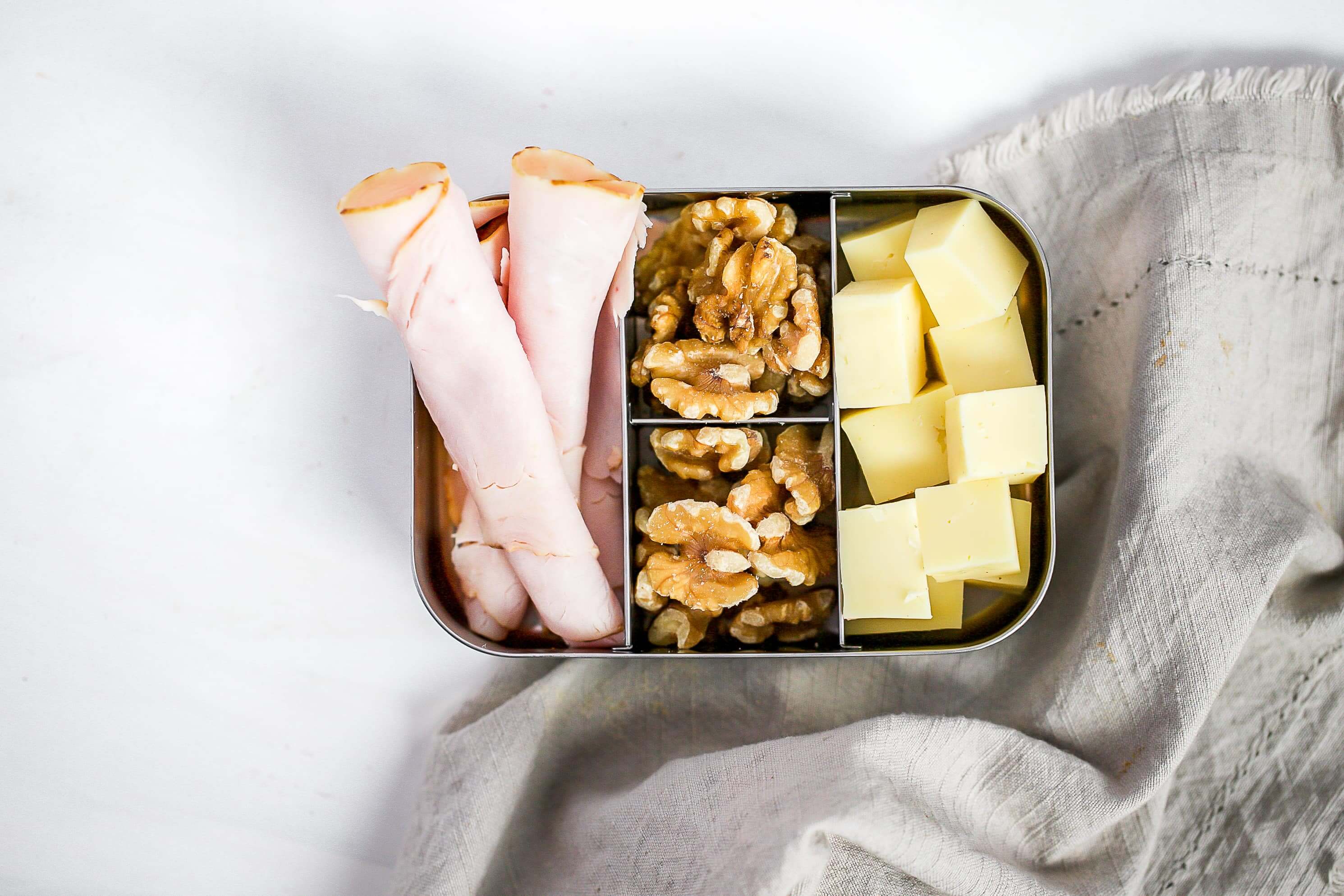The ketogenic diet is a very low carbohydrate, high fat, and moderate protein eating plan that's gaining popularity. But how does this diet work and what exactly should you consider before creating ketogenic meal plans for your clients?
The ketogenic diet puts the body into a metabolic state called ketosis. In this state, the liver produces ketone bodies from stored fat. The body uses these ketone bodies for energy instead of relying on sugar (glucose) that comes from carbohydrates (such as grains, legumes, starchy vegetables, and fruits).
To reach a state of ketosis, net carbohydrates (calculated by subtracting fiber from total carbohydrates) are restricted to fewer than 20 to 50 grams of carbs per day. This is paired with a moderate protein intake since eating too much protein can interfere with ketosis.
Use the ketogenic filter within That Clean Life to easily find recipes that meet the ketogenic diet macronutrient requirements.

As several foods are eliminated in a ketogenic diet, it can lead to certain micronutrient deficiencies and constipation. Not to mention, eating excess saturated fat with not enough healthy fats is linked to heart disease.
That Clean Life's ready-to-use Ketogenic Diet is designed with key nutrients in mind to address these potential issues. It includes a 7-day meal plan, itemized grocery list, recipes, a prep guide, and supporting evidence. The program is fully customizable based on your client’s energy needs and preferences.
These are the key nutrients we considered when creating our Ketogenic Diet, and important things to keep in mind when creating ketogenic meal plans for your clients.
High Fiber Foods
A low carbohydrate diet can help improve features of metabolic syndrome and better blood glucose management.
Our Ketogenic Diet is gluten-free, grain-free, offers low glycemic options, and provides a net carbohydrate quantity of less than 30 grams per day to keep your clients in ketosis. High-fiber, complex carbohydrates such as vegetables and nuts are paired with fats and protein to optimize insulin and energy levels and prevent constipation. This plan is sugar-free and avoids artificial sweeteners as these can negatively alter gut microbiota.
Healthy Fats
Following a ketogenic diet with good quality fats can improve cholesterol levels. Replacing carbohydrates with good fats such as avocado increases satiety and stabilizes blood sugars.
Our Ketogenic Diet incorporates omega-3 fats from walnuts and EPA (eicosapentaenoic acid) and DHA (docosahexaenoic acid) from salmon. These types of fats are associated with improved cognitive function, cardiovascular benefits, and reduced inflammation.

This simple salmon dish in our Ketogenic Meal Plan comes together in under 20 minutes and packs omega-3 fats from salmon and anchovies and monounsaturated fat from extra virgin olive oil.
Click here to add Salmon with Herb Sauce to your client’s That Clean Life meal plan.
Electrolyte Balance
The ketogenic diet has a diuretic effect due to the elimination of carbohydrates. This means that when the body enters a state of ketosis, it sheds water along with essential electrolytes such as sodium and potassium.
Our Ketogenic Diet provides an adequate amount of these electrolytes to help control blood pressure and retain normal levels of water in the body.
Important Minerals
Calcium, magnesium and phosphorus are minerals essential for building and maintaining healthy bones. These minerals are also commonly lacking in the ketogenic diet and result in nutrient deficiencies.
Our Ketogenic Diet uses calcium-rich ingredients like cheddar cheese, coconut milk, salmon, and kale. Magnesium and phosphorus are incorporated from food sources like spinach, avocado, eggs, and chicken.
Search for recipes high in calcium, magnesium, and phosphorus (amongst other vitamins and minerals) using That Clean Life's filters.

Zinc and selenium are critical to support immune function. These minerals are also commonly deficient in the ketogenic diet. We've included zinc sources from chicken and cheese, and selenium from eggs, turkey, and spinach.

Easy snacks like this Turkey & Cheese Snack Box are included in our Ketogenic Diet to provide around half of your nutrient requirements for calcium, phosphorus, magnesium, zinc, and selenium.
Important Note: Historically, ketogenic diets have been used to treat epilepsy in children. That Clean Life's Ketogenic meal plan is not intended for use as a treatment for epilepsy or any other seizure disorder. It is important to stay within your scope of practice when working with any client who has a medical condition.
Long-term, keto diets look different for everyone. Some clients may move to a cyclical ketogenic diet with periodic carb-ups. Some may find that intermittent fasting makes them feel amazing and use that strategy long-term. Others will increase carbohydrate amounts to find a level that works for them while thriving on full-fat living. Use our Meal Planning Assessment Tool to collect the right information before you build your client meal plans, and help your client discover what works and feels best for their unique needs.

